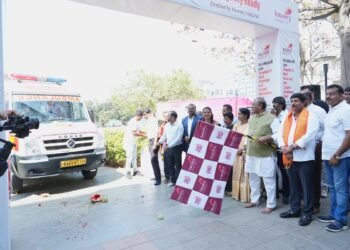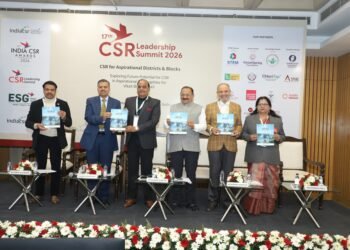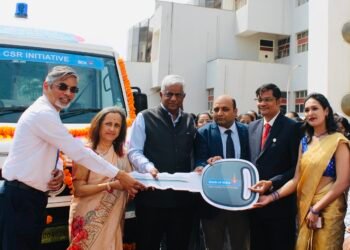NEW DELHI (India CSR): Every scientist in the country is expected to contribute at least 10 days in a year towards ‘scientific social responsibility’ (SSR) and such voluntary individual activities over and above routine works would be given due weightage in their annual performance appraisal. This provision is part of SSR guidelines, released by the science ministry in tune with the spirit of corporate social responsibility (CSR), aimed to harness the potential of the scientific community in achieving social goals.
“SSR is aimed at creating an effective ecosystem for optimum use of existing assets in order to empower the less endowed, marginalised and exploited sections of society by enhancing their capability, capacity and latent potential,” said the 14-page guidelines, released on National Technology Day last Wednesday.
Under the guidelines, the ministry enlisted 17 broad activities which can be taken up by the scientists as part of their SSR to bridge the gap between science and society.
It would be applicable for scientists working in public and private knowledge institutions (laboratories, institutes, universities, colleges and scientific institutions), central ministries, state governments, their departments and associated autonomous agencies. According to the guidelines, individual and institutional SSR activities would be adequately incentivised with necessary budgetary support. The SSR activities and projects of a knowledge institution would not be allowed to be outsourced or subcontracted.
All central government ministries and state governments are required to plan and strategise their SSR in accordance with their respective mandates.
The enlisted illustrative SSR activities include lectures by scientists in schools and colleges on modular or full courses or on a theme for inspiring students to study science and take up a career in science; mentoring of school students in their innovation projects; organising visits to planetariums, laboratories, sciences centres and industries; skill development through training and workshops, and sharing of infrastructure and knowledge resources. Delivering scientific talks on popular themes (through TV, radio, newspapers, magazines, and social media) in simple language to create scientific awareness and also to remove superstition among society is also enlisted as one of SSR activities under the guidelines.
The ministry on the National Technology Day, which coincides with India becoming a full nuclear country after the nuclear explosion at Pokhran on May 11, 1998, also released the Scientific Research Infrastructure Sharing Maintenance and Networks (SRIMAN) guidelines which aim to promote efficient utilisation and wider access of Research Infrastructure (RI) to scientists, researchers and industry professionals across the country by creating a network of relevant stakeholders.






















